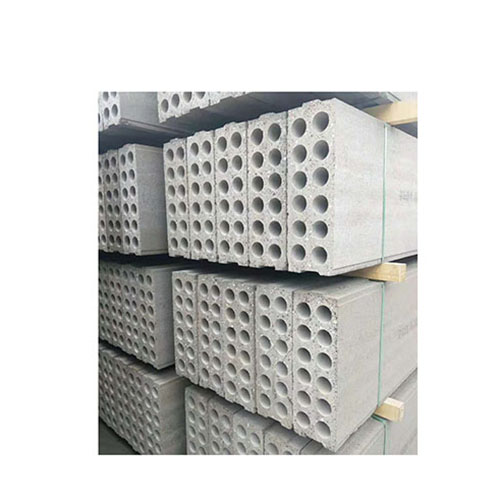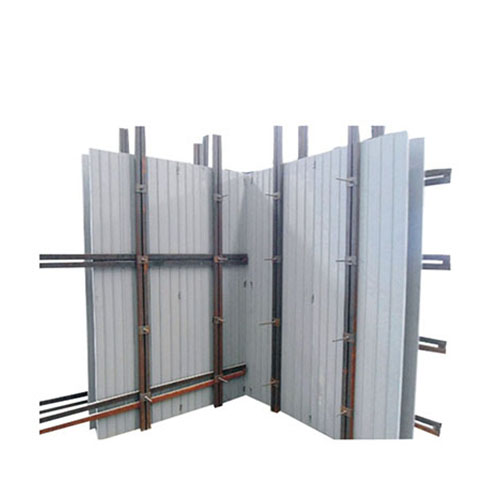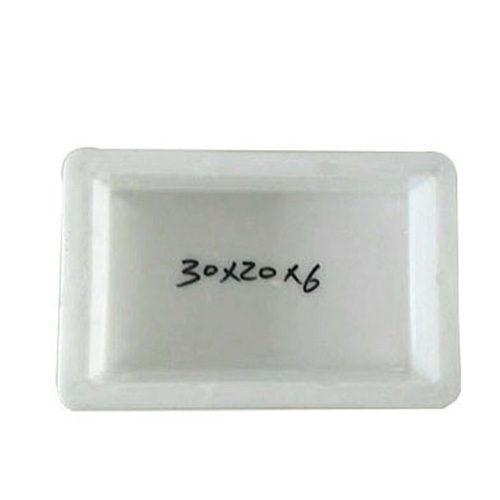Gaode Equipment Co., Ltd. (short:“Gaodetec”) owns the most advanced imported production equipment and complete production technology. Gaodetec is a national high-tech enterprise specializing in the research, development, production, sales and provide service of construction and engineering equipment.
Get Price or Support
electrolytic copper electrolysis cell
-

How Electrolysis and Electrolytic Reactions Occur in a Cell
When electrolysis begins, the battery or generator of electric current pumps electrons from its negative terminal (anode) to the cathode of the electrolytic cell. The negatively charged cathode then attracts cations in the electrolyte to itself.
-

Electrolysis - an overview | ScienceDirect Topics
Microbial electrolysis cell can potentially produce about 8–9 ... The electrolytic cell, made of Pyrex glass, ... Thus, the equivalent weight of copper is half of its atomic weight for the electrolysis of solutions containing Cu 2+, because the reaction at the cathode is.
-

China Electrolytic Cell, Electrolytic Cell Manufacturers
If you are interested in China Electrolytic Cell, You will be amazed by the variety of the product choices such as electrolysis, electrode, titanium cathode. Besides, their competitive & cheap price of Electrolytic Cell factory would get you an edge in your own market.
-

What Is Electrolytic Copper? | Sciencing
Electrolytic copper has undergone refining or purification by electrolysis. Purification by electrolysis represents the easiest method of achieving purity levels of 99.999 percent in copper, according to Science Clarified.
-

Electrolysis of copper(II) sulfate solution- Learn Chemistry
This experiment enables students to carry out the electrolysis of copper(II) sulfate solution and to link their findings with the industrial electrolytic refining of copper. Lesson organisation This class experiment can be done by students working either in pairs or threes.
-

How does the electrolysis process purify copper? What are
The electrolytic process essentially takes fairly pure copper-blister copper-and using it as an anode, plates it out onto a pure copper cathode. The cathodes and anodes are put into a copper sulfate solution and a current run through the cell.
-

ELECTROLYSIS | ELECTROLYTIC CELL | ELECTRODES
An electrolytic cell is used to perform electrolysis. It is provided with two electrodes, which are connected to different ends of the DC electric source. The electrode connected to the positive end is referred to as anode and that which is connected to the negative end is referred to as cathode .
-

Electrolysis - GitHub Pages
In an electrolytic cell, however, ... The applied voltage forces electrons through the circuit in the reverse direction, converting a galvanic cell to an electrolytic cell. Thus the copper electrode is now the anode ... Figure 19.22 A Downs Cell for the Electrolysis of Molten NaCl.
-

Why is CuSO4 used as electrolyte while purifying copper?
Why is CuSO4 used as electrolyte while purifying copper? up vote 1 down vote favorite. ... the cost difference between the slats, relative conductivities, the voltage reqired for electrolysis (considering the reduction potentials and the overpotentials of all the species) are a few reasons to choose copper sulphate. ... (electrolytic cell ...
-

Electrolysis and Electrolytic Cells Concepts - AUS-e-TUTE
Electrolysis is the process in which an electric current is used to bring about an electrochemical reaction which does not occur spontaneously (E o for the electrolytic cell is negative 1). Electrolytic Cells convert electrical energy into chemical energy.
-

Electrolytic Copper Refining Plant | Italimpianti Orafi
Electrolytic Copper Refining Plant. ... Electrolysis Cells Each cell is equipped with: • Heater • level control • Cathodes • Electrical contacts in stainless steel . Rectifiers Rectifiers of various voltages and amperages Recirculation Cells These cells are complete with recirculation pump of the electrolytic …
-

Electrolysis and Electroplating - Chemistry for Kids | Mocomi
An important use of electrolysis is in the production of metals like aluminium, sodium, calcium, magnesium; or even the purification of metals like copper, gold and silver. These days the electrolysis of water is used in the production of hydrogen for fuel or generation of electricity using fuel cells.
-

Electrochemistry- Electrolytic cells
The electrolytic cell is a very special type of cell that makes use of electrochemistry principles to force a reaction to occur despite a negative cell potential.
-

Electrolytic cells and electrolysis - Chem1
electrolytic cell Electrolysis — the process In an electrochemical cell or galvanic cell, a spontaneous chemical reaction produces an electric current. In an electrolytic cell, the reverse process takes ... of the copper electrode itself. In an electrolytic cell, the polarity of the electrodes is determined by the external DC source. In ...
-

Galvanic And Electrolytic Cells | Electrochemical
In electrolysis, an external power source supplies the free energy required to drive a cell reaction in its non-spontaneous direction. An electrolytic cell is in this sense the opposite of a galvanic cell.
-

Electrolytic cell - Revolvy
13.3 Galvanic and electrolytic cells (ESCR3) Electrochemical reactions (ESCR4). In Grade 11, you carried out an experiment to see what happens when zinc granules are added to a solution of copper…
-

CR Scientific: Electrolysis Experiments - Introduction
Faraday’s Law 1 Experiment 8: Copper Electroplating and Faraday’s Law 1 ... electrochemical cell is called an electrolytic cell. Electrolytic cells require an external source of energy, Figure 1 b. ... This expression is called Faraday’s Law of Electrolysis .
-

Difference Between Electrochemical Cell and Electrolytic
An electrolytic cell is an electrochemical cell that undergoes a redox reaction when electrical energy is applied. It is most often used to decompose chemical compounds, in a process called electrolysis—the Greek word lysis means to break up. When electrical energy is added to the system, the chemical energy is increased.
-

Electrolytic Cells | Study.com
The processes in an electrolytic cell with just two or three reactants can become very, very complex. ... the Brownlee electrolysis apparatus is designed for Direct Current (DC) only! DO NOT attempt to use AC (alternating current) for electrolysis. ... Flat electrodes of copper, zinc, carbon, etc. Make the classic "lemon battery" experiment ...
-

Electrolysis - Chemistry | Socratic
Electrolysis . Electrolysis is the process of causing the nonspontaneous reaction to occur using the external electrical source or the process of transforming the electrical energy into chemical energy. An apparatus for carrying out electrolysis is called electrolytic cell. The electrochemical principles underlying both galvanic cell and electrochemical cell are
-

Electrolysis – Introductory Chemistry- 1st Canadian Edition
The main difference between electrochemical cell and electrolytic cell is that electrochemical cell does not need any external current for operation whereas electrolytic cells need external current to …
-

electrolytic cell | eBay
When electrolytic cells are used to separate chemical compounds, the process is known as electrolysis. This word literally means to use electricity to break something ( electro = …
-

Oxidation and Reduction in Electrolytic Cells - A Plus Topper
Electrolysis is commercially highly important as a stage in the separation of elements from naturally occurring sources such as ores using an electrolytic cell. The voltage that is needed for electrolysis to occur is called decomposition potential.
-

Elecrolysis In Simple Electric Cells | Mini Chemistry
Electrolysis has many applications. For example, if NaCl is melted at about 800°C in an electrolytic cell and an electric current is passed through it, elemental sodium will appear at the cathode and elemental chlorine will appear at the anode as the following two reactions occur:
-

Electrolytic Cells - ThomasNet
Find great deals on eBay for electrolytic cell. Shop with confidence.
-

Oxidation and Reduction in Electrolytic Cells In an electrolytic cell, an electric current is passed through an electrolyte using electrodes. The electrolyte may be a molten ionic compound or an aqueous solution containing ions. The electrodes are usually inert conductors such as platinum or carbon. Sometimes active electrodes such as copper are used.
-

Electrolysis takes place in an electrolytic cell. Electrolysis occurs when the passage of an electric current through a solution causes chemical reactions at the electrodes that would
-

A simple cell is a device that converts chemical energy into electrical energy. A simple electric cell consists of two electrodes (two different metals) and an electrolyte solution (acid …
-

Manufacturer of electrolytic cells for heavy metal or precious metal recovery from drag-out, plating or strip solutions: expanded surface area cathodes with turbulent flow allow for extraction of gold, silver, copper, cadmium & palladium.









